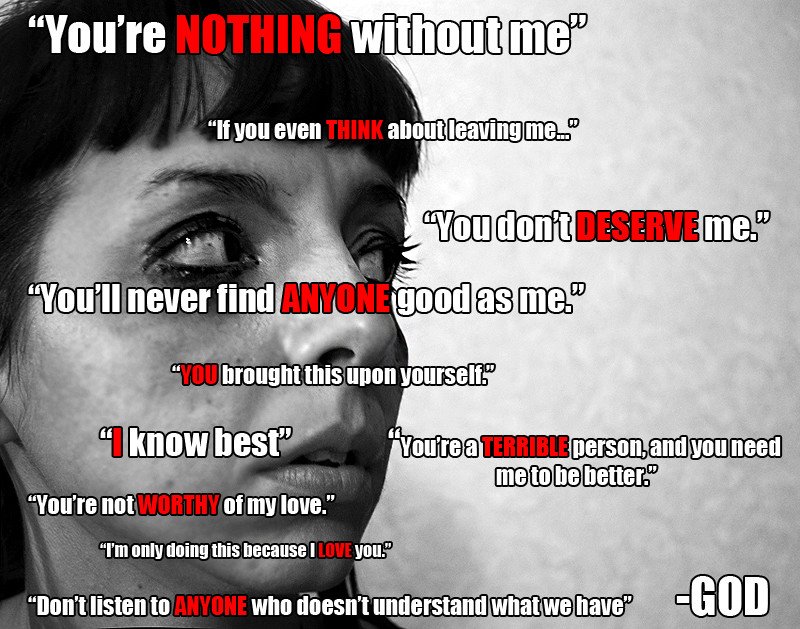Some of behaviors typical of abusers exist in moderation in all of us. After all, being in an intimate relationship inevitably means dealing with disagreement and conflict. However, abusers display many — if not all — of the behaviors listed below, and often in the extreme. Reading this list should help you decide if you are involved with an abuser.
 Typical abuser behaviors:
Typical abuser behaviors:
– Constant criticism
– Sudden mood change, anger
– Threats of violence, verbal abuse
– Denying or ignoring your needs, opinions; blaming you for his/her behaviors
– Making all the decisions including the way you dress
– Controlling money, your time, where you go
– Limiting your contact with other people
– Physical intimidation or use of force during an argument
– Sexual humiliation, “playful” use of force in sex
– Jealousy, accusations,hyper-sensitivity
– Humiliating you in front of others, repeatedly calling you “crazy”
– Ridiculing or insulting people you like
-Threatening to kill himself if you leave him
– Revealing your personal life in public
– Lying about insignificant things
– Refusing to talk, sulking, walking away
– Throwing or breaking objects, stomping out of the room or house
– Unpredictable responses, emotional blackmail
– Driving recklessly
Do you find yourself...
– discouraging people from calling you at home?
– apologizing for things you have not done?
– isolated?
– nervous or frightened of being late?
– over-powered by your partner’s presence?
– afraid of speaking freely because it will anger your partner?
Maybe you feel…
– that you are “walking on eggshells”?
– that he is unhappy and that you are the only one who can help your partner?
– inadequate,confused?
– ashamed, deserving of the abuse?
– afraid no one will love you if you leave the relationship?
– distrustful of your feelings, personal values, perceptions?
– responsible for the situation?
– that you are lacking self-confidence, self-worth?
– dominated, verbally assaulted?
Do you find yourself minimizing the abusive behavior?
– “S/He doesn’t mean to hurt me, he just loses control”
– “S/He had a really hard life”
– “S/He is always sorry afterwards”
– “S/He is intelligent, people love him”
– “S/He scared me a few times but he never hurts the children; he is a good father”
– “S/He can be sweet and gentle”
How many times did you hope your partner would change in the face of his/her remorseful promises? However you cannot change your partner no matter how willing you are. Yet you have choices.
Contact us at dvwomensgroupparis@gmail.com
